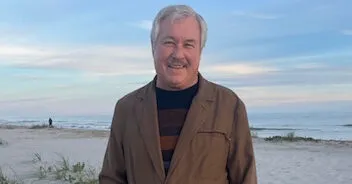by Mike Matzinger
Michael Manyak (1951–2024), Distinguished Eagle Scout and world-renowned expert in backcountry medicine, passed away at the age of 73. Born in Flint, Michigan, Manyak earned the rank of Eagle Scout in 1964 from Troop 319, a milestone that marked the beginning of a lifelong commitment to exploration, medicine, and service. After focusing on his education and burgeoning career, he reconnected with Scouting in 2005 when the Boy Scouts of America honored him by naming a subcamp at the National Scout Jamboree after him. This renewed involvement led to his pivotal role in creating the Exploration merit badge and in founding the NESA World Explorers program, which has sent Eagle Scouts on scientific expeditions across the globe, including the Amazon rainforest, the Galápagos Islands, and projects studying bald eagles in the United States.
Professionally, Manyak was a urologist and a leader in crisis response and global medical affairs, serving as chief medical advisor for Accenture, global medical affairs director for GSK, and chief medical officer for Triple Canopy. He was also an adjunct professor of urology and engineering at George Washington University and a member of the Baylor College of Medicine National School of Tropical Medicine. A prolific author, Manyak wrote Lizard Bites & Street Riots — Travel Emergencies and Your Health, Safety, and Security, a guide to safety and wellness in travel and exploration, and his final book, Take Two Aspirin and Call Me at 20,000 Feet: An Eagle Scout at the Crossroads of Medicine, Exploration, and Science.
Throughout his life, Manyak combined his passion for Scouting and exploration. He served as vice president of the National Eagle Scout Association (NESA) and helped guide the NESA World Explorers program alongside Bill Steele and Glenn Adams. His leadership and vision enabled over 75 Eagle Scouts to engage in research expeditions that shaped their academic and professional paths. Manyak’s fieldwork was extensive, spanning expeditions to the RMS Titanic wreck, the Congo Basin, Mongolia, Tanzania, the Gobi Desert, and Antarctica, among others. He personally participated in a dive to the Titanic in a Russian submersible, emphasizing meticulous risk management and safety.
Colleagues remember Manyak as a “life enthusiast” and a mentor whose guidance extended from medicine to exploration. Lee Berger, National Geographic Explorer in Residence and fellow Eagle Scout, described him as someone who “truly lived my personal motto of ‘never stop exploring.’ He lived a full, rich, and impactful life, leaving the world a better understood, more thoroughly explored, and safer place for adventurers, explorers, and millions of Scouts around the world.”
Michael Manyak’s legacy is one of courage, knowledge, and service. Through his dedication to the principles of Scouting, his leadership in medicine and exploration, and his commitment to sharing opportunities with others, he inspired countless Scouts and explorers to pursue excellence, adventure, and a life of meaningful impact.



